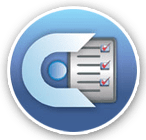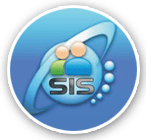Here are some of the key reasons why schools should use school management software:
Efficient Administrative Tasks: School management software streamlines administrative tasks such as student enrollment, attendance tracking, and fee collection. This automation reduces the administrative workload and minimizes errors.
Improved Communication: It facilitates better communication between teachers, parents, and students. Features like online portals and messaging systems allow for real-time updates, announcements, and easy communication between all stakeholders.
Student Data Management: School management software helps in organizing and managing student data efficiently. This includes academic records, attendance, grades, and personal information. Having a centralized database makes it easier to access and update student information.
Attendance Tracking: Automated attendance tracking reduces the time and effort required for manual attendance taking. It also helps in identifying patterns of absenteeism early, allowing for timely interventions.
Academic Performance Monitoring: Teachers and administrators can use the software to track and analyze student academic performance. This data-driven approach can lead to better decision-making, such as identifying struggling students who need additional support.
Resource Management: Schools can manage resources like classrooms, faculty, and equipment more effectively. This can lead to better resource allocation and utilization.
Parent Engagement: School management software often includes parent portals where parents can access information about their child's progress, attendance, and school events. This improves parent engagement and involvement in their child's education.
Financial Management: The software simplifies financial management tasks such as fee collection, expense tracking, and budget planning. It provides accurate financial reports and helps in maintaining transparency in financial transactions.
Timetable and Scheduling: Creating and managing class schedules and timetables becomes easier with the software. It minimizes scheduling conflicts and ensures efficient use of time.
Security and Data Privacy: School management software typically comes with security features to protect sensitive student and administrative data. Access controls and data encryption help safeguard information.
Analytics and Reporting: Schools can generate various reports and analytics to assess their performance, identify areas for improvement, and make data-driven decisions.
Compliance and Reporting: Educational institutions often need to comply with government regulations and reporting requirements. School management software can help automate the process of generating reports for regulatory bodies.
Scalability: As schools grow, their management needs also grow. School management software can scale to accommodate the increasing demands of a growing institution.
Enhanced Decision-Making: The data and insights provided by the software enable school administrators to make informed decisions regarding curriculum, staffing, and resource allocation.
Streamlined Admission Process: The software can simplify the admission process, from online application submissions to document verification and interview scheduling.
In summary, School management software enhances the efficiency, organization, and communication within educational institutions. It enables schools to focus more on education and less on administrative tasks, ultimately leading to an improved learning environment for students.







